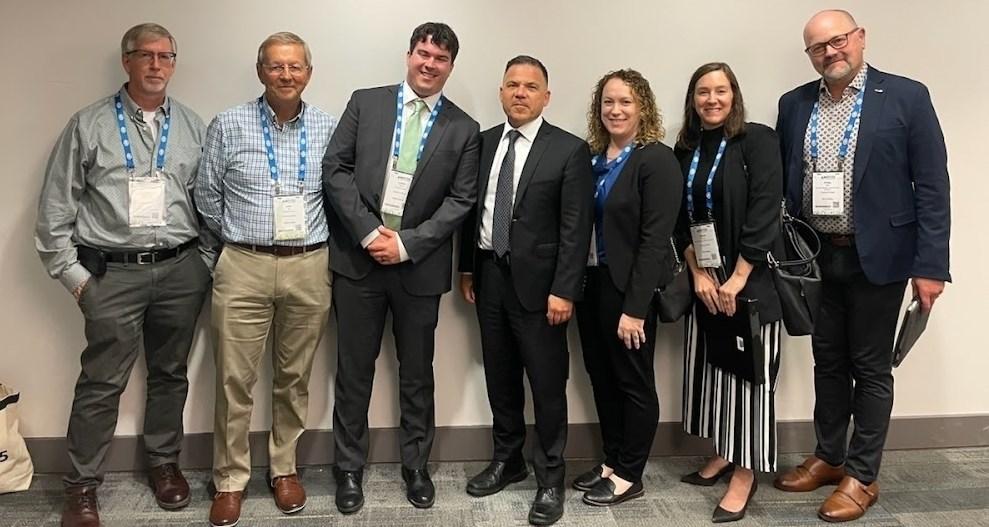
2 minute read
COMMUNITY NEWS
SCOR Delegations Highlights
With SCOR, the County of Brant advocated on a number of topics to six ministries and two of three opposition party leaders with their caucuses. A few highlights from those meetings:
Advertisement
* We discussed Southwest Community Transit (SCT), a transit network which connects nine municipalities and covers 21,000 km², of which our own Brant Transit is a partner SCT, and many of the transit services including Brant Transit, was started in 2019 in response to Transit Pilot funding from the provincial government as an initiative to encourage the development of transit We advocated to have this vital funding continue past the planned closure date of March 2025 as the transit has become critical for members of our shared community, including workers using the service to get to work, students needing transportation to school, and seniors accessing healthcare to remain in their homes independently. An end to SCT could have an impact on lost wages across the region to the tune of nearly half a billion dollars, assuming the workers using the transit services receive average hourly wages of $20 per hour.
* We further discussed Agricultural Impact Assessments and broader land use strategy in rural Ontario, as SCOR is the home to one third of Ontario's Rural population in the heart of prime farmland. All member municipalities including the County of Brant have been tasked with the important work of building homes, but have not been given clear direction on how to assess which lands must be developed.
* We discussed the region's expanding energy needs, particularly in renewable energy. From a Brant specific lens, we requested government funding or programs to support our Brant Municipal Enterprises in its solar energy programs, as well as exploring interest in reviving the low-rise hydroelectric dam the County had a contract signed for in 2018 before it was canceled by the current government.
* We advocated for the government to carefully consider rural Ontario's unique infrastructure needs and struggles, highlighting that our pockets of urban areas are more expensive to service than cities. In particular, we emphasized the importance of giving us tools to encourage concentrated growth, rather than dispersing that growth, as it vastly increases the cost of delivering infrastructure for the same number of homes (plus the impact of disrupting and destroying agricultural lands).
In addition to our delegations, we also had the opportunity to attend a number of informational concurrent sessions, panels, and visit the trade show for innovative municipal products and services. The plenary sessions of the event also had several ministerial announcements, keynote speakers, all four major party leaders delivering addresses, and the infamous “bear pit” ministers’ panel. While our County delegates' first priority was our delegations, we did our best to divide and conquer, to ensure we extracted as much as possible out of these various features of the event.
Continued in Next Week’s Edition of The Paris Independent, as submitted by
Pictured left to right: Councillor John MacAlpine, Councillor John Bell, Councillor Lukas Oakley, Parliamentary Assistant to the Minister of Health Anthony Leardi, Councillor Jennifer Kyle, General Manager of Development Services Alysha Dyjach, General Manager of Community Services Phil Mete.









